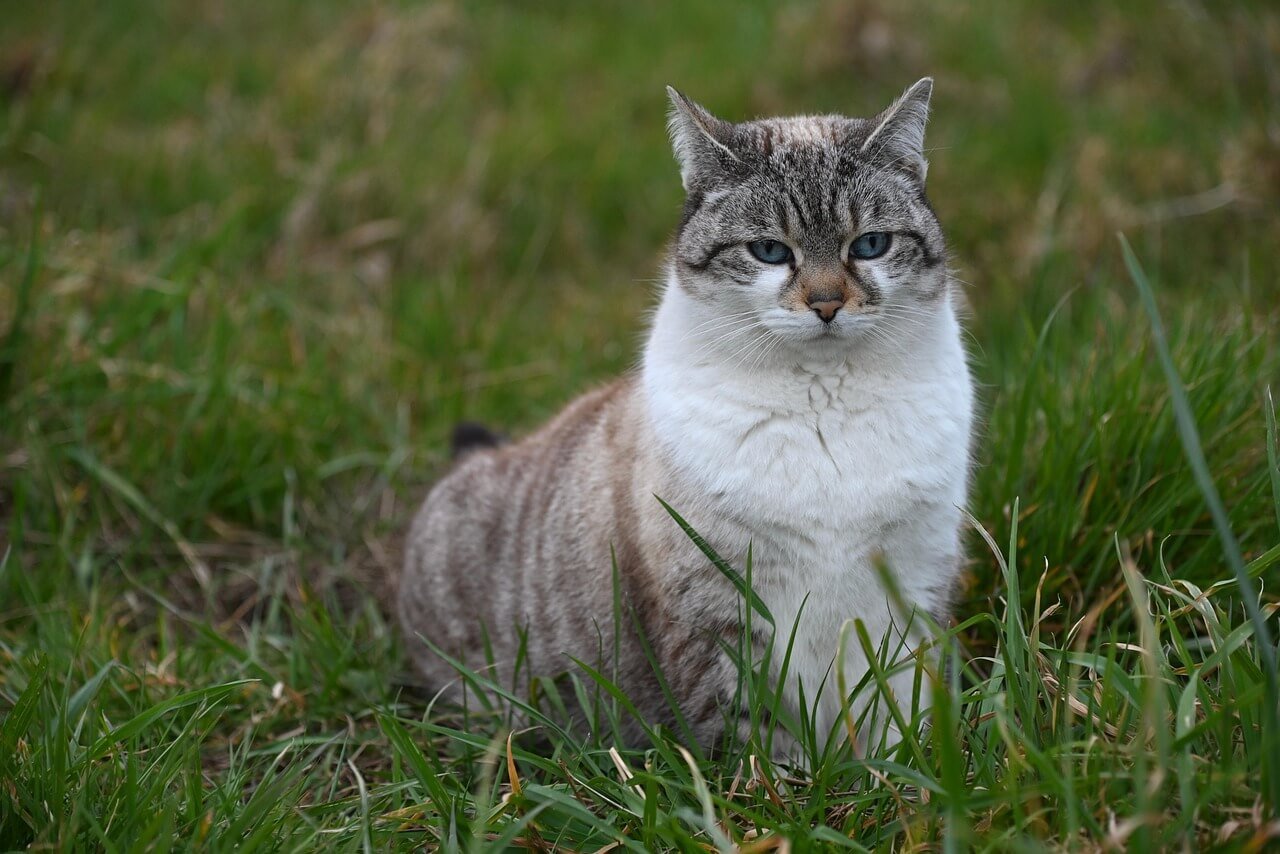Can Cats Eat Cinnamon? What Every Cat Owner Should Know
Cinnamon is a warm, aromatic spice that many of us enjoy in our food and drinks. But when it comes to sharing this beloved spice with our feline friends, caution is key. While cinnamon isn’t toxic to cats in small amounts, it’s not entirely safe either. Understanding how cinnamon affects cats can help you make informed decisions about their diet and ensure their well-being. In this blog post, we’ll explore whether cats can eat cinnamon, the potential risks and benefits, and how to keep your curious kitty safe. Let’s dive into the details so you can better understand what’s best for your furry companion.
Is Cinnamon Safe for Cats? Key Considerations
When it comes to feeding cinnamon to cats, moderation and context are crucial. While small amounts may not cause harm, there are important factors to consider before introducing this spice into your cat’s environment. Here’s what you need to know:
Small Amounts Are Generally Tolerated
A tiny sprinkle of cinnamon on occasion is unlikely to harm your cat, but it offers no nutritional benefit either.Avoid Essential Oils Containing Cinnamon
Cinnamon essential oils or concentrated extracts can be toxic to cats and should be avoided entirely.Inhalation Can Be Dangerous
Cats exposed to cinnamon powder in the air may experience respiratory irritation due to their sensitive lungs.Digestive Upset May Occur
Consuming cinnamon in larger quantities can lead to vomiting, diarrhea, or stomach discomfort in cats.Allergic Reactions Are Rare but Possible
Some cats may have an adverse reaction to cinnamon, including skin irritation or swelling.
While cinnamon isn’t inherently toxic in small doses, it’s best to err on the side of caution and avoid giving it to your cat altogether. Their health and safety always come first.
Potential Risks of Feeding Cinnamon to Cats
Understanding the risks associated with cinnamon can help you protect your cat from accidental exposure. Here are some potential dangers to be aware of:
Respiratory Issues
Inhaling cinnamon powder can irritate a cat’s lungs, leading to coughing, sneezing, or difficulty breathing.Liver Toxicity in High Doses
Large amounts of cinnamon contain coumarin, a compound that can harm a cat’s liver if ingested frequently.Gastrointestinal Distress
Even small amounts of cinnamon may upset a cat’s stomach, causing symptoms like vomiting or diarrhea.Skin Irritation
Direct contact with cinnamon powder or oil can irritate a cat’s skin, especially if they groom themselves afterward.Behavioral Changes
Exposure to cinnamon may cause stress or anxiety in cats, particularly if they find the scent overwhelming.
These risks highlight why it’s essential to keep cinnamon out of your cat’s reach. Always prioritize their natural diet and avoid unnecessary additives.
Check this guide 👉Can Cats Eat Blueberries? Best 7 Health Tips!
Check this guide 👉Can Cats Eat Peanut Butter? Best 7 Health Tips!
Check this guide 👉Can Cats Eat Eggs? Best 7 Expert Tips!

Potential Benefits of Cinnamon (Rare Cases) | Risks of Cinnamon for Cats |
|---|---|
Antioxidant properties (theoretical) | Respiratory irritation from inhalation |
Anti-inflammatory effects (minimal impact) | Gastrointestinal upset from ingestion |
Natural flea repellent (not proven) | Liver toxicity from high doses |
May freshen breath (rare use) | Skin irritation from direct contact |
Adds flavor to homemade treats (human use) | Stress or anxiety from strong scents |
How to Keep Your Cat Safe Around Cinnamon
Prevention is the best way to ensure your cat stays safe around cinnamon. By taking a few simple precautions, you can avoid accidental exposure and keep your pet healthy. Here are some tips:
Store Cinnamon Safely
Keep cinnamon powder, sticks, and essential oils in secure containers out of your cat’s reach.Avoid Using Cinnamon in Homemade Treats
Stick to cat-safe ingredients when preparing homemade snacks, and never include spices like cinnamon.Clean Up Spills Immediately
If cinnamon spills on surfaces or floors, clean it up right away to prevent your cat from coming into contact with it.Use Pet-Friendly Cleaning Products
Avoid cleaning products or air fresheners that contain cinnamon scents, as these can irritate your cat’s respiratory system.Supervise During Baking or Cooking
Be mindful when using cinnamon in recipes, as curious cats may try to investigate and accidentally ingest it.
By following these steps, you can minimize the risk of cinnamon exposure and create a safer environment for your cat.
Signs Your Cat May Have Eaten Cinnamon
If you suspect your cat has ingested cinnamon, it’s important to recognize the signs early so you can take action. Here are some symptoms to watch for:
Vomiting
Frequent vomiting is a common sign of digestive upset caused by cinnamon ingestion.Diarrhea
Loose stools may indicate that your cat’s stomach is reacting poorly to cinnamon.Coughing or Sneezing
Respiratory irritation from inhaling cinnamon powder can cause persistent coughing or sneezing.Lethargy
Unusual tiredness or weakness may signal that your cat is feeling unwell after consuming cinnamon.Loss of Appetite
A sudden refusal to eat could indicate nausea or discomfort related to cinnamon exposure.
If you notice any of these symptoms, consult your veterinarian immediately. Early intervention can prevent complications and ensure your cat recovers quickly.
Alternatives to Cinnamon for Curious Cats
If your cat shows interest in spices or aromatic flavors, there are safer alternatives you can introduce to satisfy their curiosity. These options are specifically chosen to be cat-friendly and non-toxic. Here are some ideas:
Catnip
A natural herb that many cats love, catnip is safe and can provide hours of entertainment.Parsley
This mild herb is non-toxic to cats and can even help freshen their breath in small amounts.Basil
Another cat-safe herb, basil can be offered sparingly as a treat or garnish.Plain Pumpkin Puree
Rich in fiber, plain pumpkin puree (without added sugar or spices) can aid digestion and make a healthy snack.Cooked Chicken or Turkey
Unseasoned, cooked poultry is a great protein-rich treat that most cats adore.
These alternatives allow you to indulge your cat’s curiosity without compromising their health. Always introduce new foods gradually and in moderation to avoid digestive upset.
Fun Ways to Stimulate Your Cat Without Spices
Cats are naturally curious creatures, and stimulating their senses doesn’t require introducing potentially harmful substances like cinnamon. Here are some fun and safe ways to engage your cat:
Interactive Toys
Toys that mimic prey, such as feather wands or laser pointers, can keep your cat entertained and active.Scratching Posts
Providing a scratching post satisfies their need to scratch while protecting your furniture.Hiding Treats
Hide small treats or kibble around the house to encourage exploration and mental stimulation.Cat Trees or Climbing Structures
Multi-level cat trees offer climbing opportunities and a cozy spot to observe their surroundings.Window Perches
Installing a window perch allows your cat to enjoy bird-watching and outdoor views safely.
By focusing on these activities, you can keep your cat happy and engaged without resorting to potentially risky substances. A stimulated cat is a content cat!
Tips for Introducing New Foods to Your Cat
Introducing new foods to your cat requires care and attention to ensure they don’t experience adverse reactions. Whether you’re trying a cat-safe herb or a vet-recommended treat, follow these guidelines to make the process smooth:
Start with Small Amounts
Offer tiny portions to gauge your cat’s reaction and avoid overwhelming their digestive system.Observe for Allergic Reactions
Watch for signs of itching, swelling, or gastrointestinal upset after introducing a new food.Avoid Seasoned or Processed Foods
Stick to plain, unseasoned options to prevent exposure to harmful additives or spices.Consult Your Veterinarian First
Always check with your vet before introducing unfamiliar foods, especially if your cat has health issues.Maintain a Balanced Diet
New foods should complement, not replace, your cat’s regular diet to ensure they receive all essential nutrients.
By following these tips, you can safely expand your cat’s palate while prioritizing their well-being. Remember, moderation and veterinary guidance are key to keeping your feline friend healthy and happy.
Frequently Asked Questions About Cats and Cinnamon
Can cats eat cinnamon rolls or baked goods with cinnamon?
No, baked goods often contain sugar, dairy, or other ingredients that are harmful to cats, in addition to cinnamon.
Is cinnamon essential oil safe for cats?
No, cinnamon essential oil is highly toxic to cats and should never be used around them.
What should I do if my cat eats cinnamon?
Monitor your cat for symptoms like vomiting or lethargy and contact your vet if you notice any concerns.
Can cinnamon repel fleas on cats?
There’s no scientific evidence to support this claim, and applying cinnamon directly to your cat’s fur can cause irritation.
Are there any spices that are safe for cats?
Most spices are not recommended for cats, but plain, cat-safe herbs like catnip or parsley can be enjoyed in moderation.
Prioritizing Your Cat’s Health and Happiness
While cinnamon may add warmth and flavor to our meals, it’s best to keep it far away from your feline friend. Cats have unique dietary needs and sensitivities that make spices like cinnamon unsuitable for them. By understanding the risks and taking preventive measures, you can ensure your cat stays safe and healthy. Remember, the best way to show love to your pet is by providing them with a balanced diet and a safe environment. When in doubt, always consult your veterinarian for advice tailored to your cat’s specific needs. Together, we can keep our furry companions happy, healthy, and free from unnecessary risks.
Do Cats Have Taste Buds? Best 7 Expert Tips! – Discover how cats experience flavors and why their taste is so unique.
Do Dogs Have Taste Buds? Best 7 Expert Tips! – Discover how dogs experience taste, their preferences, and what it means for their diet and health.
Can Cats Taste Sweet? Best 7 Expert Tips! – Discover why cats can’t taste sweetness, how it affects their diet, and tips to keep them healthy and happy.
Can Dogs Taste Sweet? Best 7 Expert Tips! – Discover how dogs perceive sweetness, which foods are safe, and tips to manage their sweet cravings responsibly.





